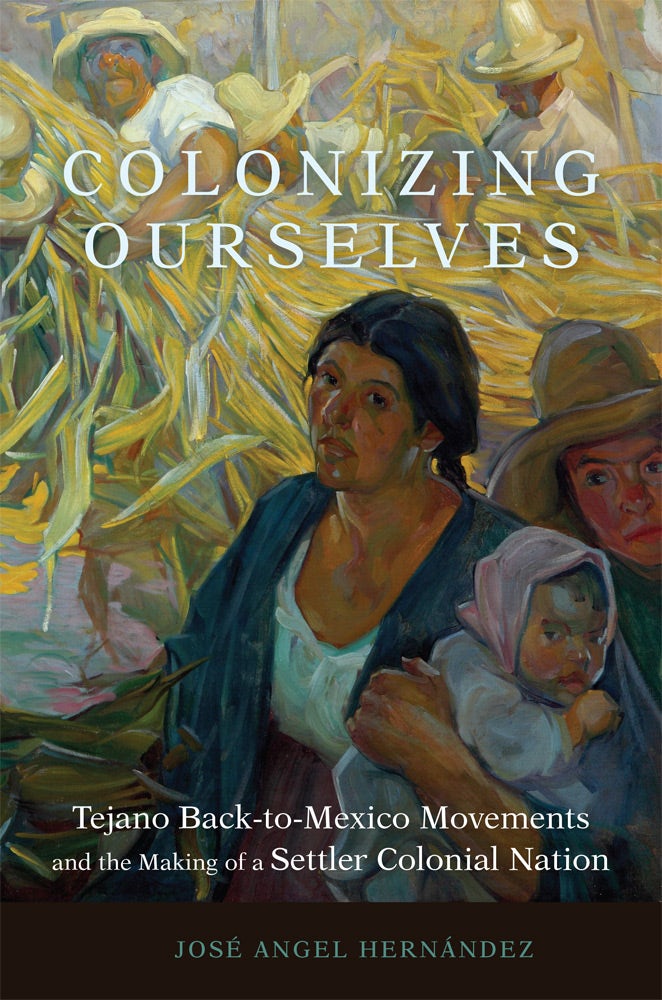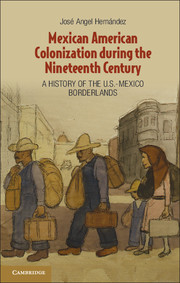José Angel Hernández | Department of History
José Angel Hernández
Associate Professor
J.A. Hernández,
Hernández's connections to The University of Houston date back two decades (1998) when he first attended Graduate School in the Department of History and as a Graduate Fellow with the Center for Mexican American Studies (CMAS). In 2013 he returned to the UH as a CMAS Visiting Scholar and then accepted a position the following year as an Associate Professor of History. In 2017, CMAS awarded Hernández a Faculty Research Grant for his ongoing project, “Back to Mexico Movements during the Porfiriato."
Recently, Professor Hernández was awarded a Fulbright US Scholar award to research the Colonial Archives of Cebu City and Manila, Philippines for the Academic Year 2019. This is Hernández's third Fulbright Fellowship. His long-term project is titled "Comparative Colonizations on a Global Scale" and seeks to compare the varied experiences, effects, and expressions of Spanish Colonization in Asia with that of the Americas and the Carribean.
More recently, in 2024, Hernández received the Captain Alonso de León Steel Medal for Historical Merit in the International category. This honor, conferred by the Nuevoleonesa Society of History, Geography, and Statistics (SNHGE), celebrates outstanding contributions to international history. Named after Captain Alonso de León, a 17th-century Spanish explorer pivotal to the colonization of Nuevo León, the award acknowledges individuals, institutions, or projects that have significantly advanced the study and dissemination of history, geography, or culture, both within and beyond Mexico.
Teaching
Professor Hernández's teaching interests include courses like "Philosophies of History" and "History of Histories: Capstone Course on Historiography."
Courses Offered
HIST: 4336: History of Histories: Capstone Seminar on Historiography
HIST: 4340: Philosophies of History
Research Interests
Professor Hernández's research focuses on the analysis of Mexico's evolving colonization and immigration policies and practices during the nineteenth and twentieth centuries, particularly regarding migrants and Mexican Americans who returned south to settle and colonize the northern frontier.
His first book, Mexican American Colonization During the Nineteenth Century: A History of the US-Mexico Borderlands (2012), was published by Cambridge University Press. It received two prestigious book awards: the inaugural William M. LeoGrande Prize for the Best Book on U.S.-Latin American Relations in 2013, presented by The School of Public Affairs and the Center for Latin American and Latino Studies at American University, and the 2013 Américo Paredes Book Award, bestowed by the Center for Mexican American Studies at South Texas College.
In 2024, Professor Hernández published his latest book, Colonizing Ourselves: Tejano Back to Mexico Movements and the Making of a Settler Colonial Nation, which takes a global to granular approach to the question of settler colonization in Mexican history. He argues that Mexico, like its northern neighbor, is a settler colonial state but the colonization process evolved in a unique way because of the country’s growing diasporic population following the Mexican-American War (1846–48). Specifically, contemporaries described the Mexican colonization policies that were adopted and implemented as autocolonization. Unlike settler colonial states that relied on attracting millions of settlers from abroad, especially from Europe, Mexico received less than 1 percent of these nineteenth-century immigrants. This fact, coupled with the growing migration of farmers and laborers northward toward the United States, compelled various Mexican administrations to address labor emigration in numerous ways, culminating in the passage of the 1883 Land and Colonization Law. The case of Luis Siliceo illustrates how this logic was employed to stymie migration across the international boundary by giving preferential treatment to any Mexican in the United States who was willing to return and resettle in the republic.
Selected Publications
Books
- "Colonizing Ourselves": Tejano Back-to-Mexico Movements and the Making of a Settler
Colonial Nation, “New Directions in Tejano History Series, volume 5” (Norman: University of Oklahoma
Press, 2024).
- Mexican American Colonization During the Nineteenth Century: A History of the US-Mexico
Borderlands, (Cambridge; New York: Cambridge University Press, 2012)


Articles and Book Chapters
-
“El México Perdido y Anelado: The Prose of Settler Colonialism Amidst the Diaspora,” In Writing/Righting History: Twenty Five Years of Recovering the US Hispanic Literary Heritage, Clara Lomas and Antonia Castañeda, Eds. (The University of Houston: Arte Público Press, 2020): Pgs. 185-224.
- “The Decree of 19 August 1848: First Repatriation Commissions and Postwar Settlements along the US-Mexico Borderlands,” 33 Md. J. Int'l L. 1 (2018). https://digitalcommons.law.umaryland.edu/mjil/vol33/iss1/3
Premio, Mejor Artículo en Ciencias Sociales, Mexico Section; LASA, 2019.
-
“Indios Bárbaros and the Making of Mexican Colonization Policy after Independence: From Conquest to Colonization,” Chapter in Transnational Indians in the North American West, “Connecting the Greater West Series,” Andrae M. Marak & Clarissa Confer, Eds. (Texas A&M University Press, 2015).
-
“Mexican Expulsions & Indian Removal during the Early Period of Global Mass Immigrations,” in World History Bulletin XXX, No. 2, Special Section: “Indigenous and World History,” Jared Poley, Editor, (Fall 2014): 30-34.
-
“Contemporary Deportation Raids and Historical Memory: Mexican Expulsions in the Nineteenth Century,” Chapter in Memorias del Simposio Internacional México-Alemania 2010: Migración: Desafios y Posibilidades, (Guadalajara: Prometeo Editores, 2010): 23-47.
-
“From Conquest to Colonization: Indios and Colonization Policies after Mexican Independence,” Mexican Studies/Estudios Mexicanos 26: 2, (Summer 2010): 285-315.
-
“Contemporary Deportation Raids and Historical Memory: Mexican Expulsions in the Nineteenth Century,” Aztlán: A Journal of Chicano Studies 52:2, (Fall 2010): 115-141. (Reprinted en Memorias del Simposio Internacional México-Alemania 2010: Migración: Desafios y Posibilidades, (Guadalajara: Prometeo Editores, 2010): 23-47.
